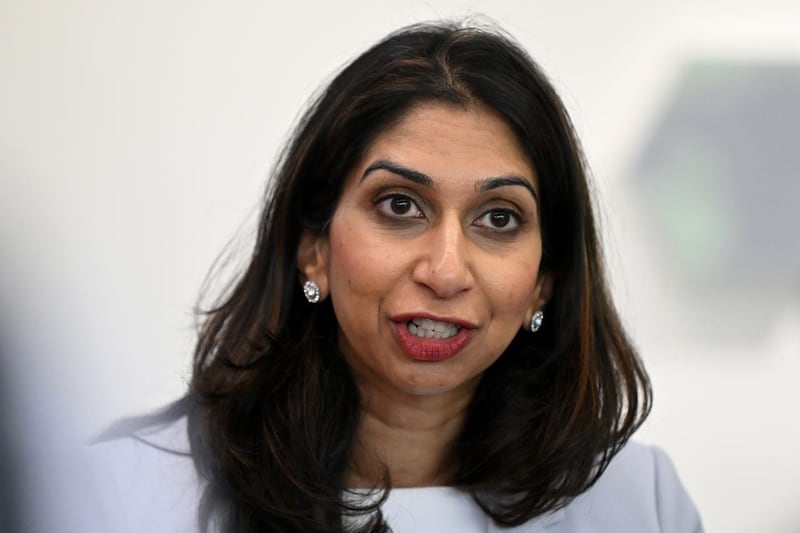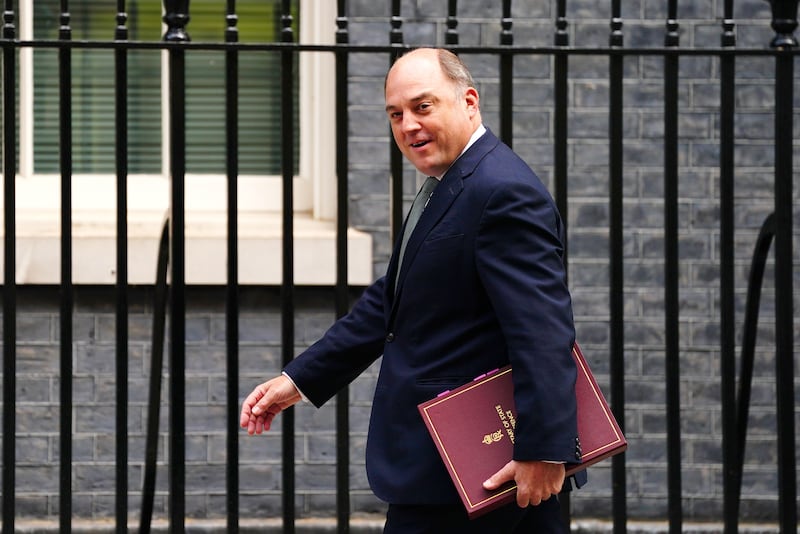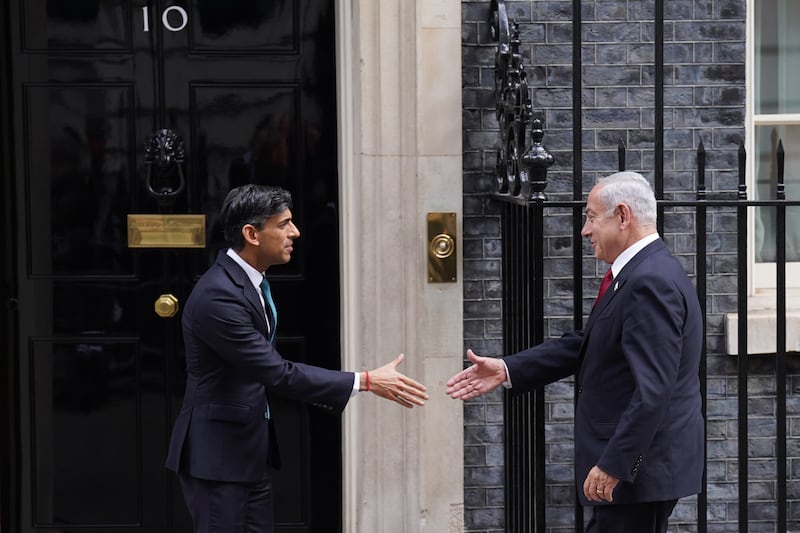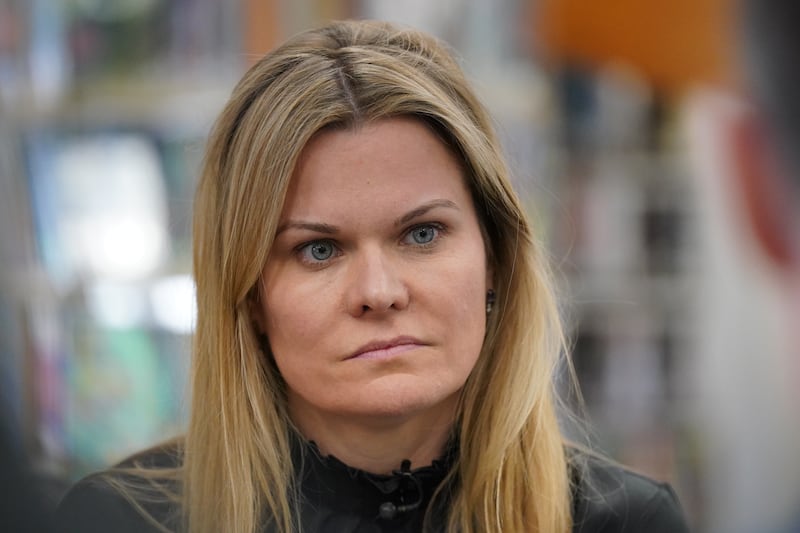Banning Iran’s Islamic Revolutionary Guard Corps (IRGC) could sever the UK’s direct diplomatic link with Tehran, a minister warned.
Prime Minister Rishi Sunak has come under renewed pressure to proscribe the IRGC as a terrorist organisation following Iran’s missile and drone barrage aimed at Israel.
But Home Office minister Laura Farris suggested Foreign Secretary Lord Cameron wants to maintain the ability to speak directly to Iran, something which could be jeopardised if the military force is banned.
The UK is keen to preserve diplomatic ties with Tehran to minimise the risk of a miscalculation in the Middle East which could ignite a wider war.
Mr Sunak is set to urge Israeli Prime Minister Benjamin Netanyahu to show restraint in a call on Tuesday after the thwarting of the Iranian attack over the weekend.
Britain joined the US and other allies in shooting down Iranian attack drones on Saturday night, and has subsequently joined the US in urging calm in the region as the Israeli leader considers how to respond.
The IRGC wields significant influence over Iran’s politics and has been blamed for destabilising the Middle East through its support for groups including Hamas and Hezbollah targeting Israel and the Houthis in Yemen who have attacked Red Sea shipping.
Senior Tories including former leader Sir Iain Duncan Smith and ex-home secretary Suella Braverman have urged the Prime Minister to proscribe the group as a terrorist organisation.
The Israeli government has also urged countries including the UK to ban the IRGC.
Alongside the military response to the firing of the missiles and the UAVs, I am leading a diplomatic offensive against Iran.
This morning I sent letters to 32 countries and spoke with dozens of foreign ministers and leading figures around the world calling for sanctions to be…
— ישראל כ”ץ Israel Katz (@Israel_katz) April 16, 2024
But Ms Farris told LBC: “I don’t think there’s any disagreement, actually, on the principle.
“We’re not for a second defending the IRGC. We’re simply saying that maintaining that channel with Tehran at this moment in time is, at present, in our national interest.”
She told Sky News: “Nobody is denying that they are a malign force. We have repeatedly sanctioned both individual commanders and the IRGC more generally, so that puts very severe restrictions on their ability to move and on other freedoms that they would have had. We are not suggesting they are not a problem.”
Mr Sunak has indicated that any further action could be co-ordinated with the UK’s allies in the G7 group of major democracies.
The United States has already designated the IRGC as a terrorist organisation.
The UK and allies are engaged in intensive diplomatic activity to try to prevent a further escalation in the Middle East.

Mr Sunak told MPs on Monday that he will speak to Mr Netanyahu to offer support and “discuss how we can prevent further escalation”, adding “all sides must show restraint”.
The Foreign Secretary is also expected to visit Israel soon, and on Monday urged Tel Aviv to be “smart as well as tough” by not escalating the conflict with Iran.
The Prime Minister had been due to speak to Mr Netanyahu on Monday, but with the Israeli prime minister locked in a war cabinet this proved not to be possible.
Israel is still considering how to hit back at Iran after Saturday night’s attack, which involved around 350 drones and missiles, but on Monday night said the barrage “will be met with a response”.
Directly and through its terror proxies Hamas and others, Iran is conducting a full-scale campaign of aggression that threatens not only Israel but the entire Middle East.
— Prime Minister of Israel (@IsraeliPM) April 15, 2024
Posting on social media site X, formerly Twitter, Mr Netanyahu’s official account said his country “deeply appreciates the support of the United States, Britain, France and others in thwarting the Iranian attack against Israel”.
He added: “Directly and through its terror proxies Hamas and others, Iran is conducting a full-scale campaign of aggression that threatens not only Israel but the entire Middle East.
“The international community must continue to stand united in resisting this Iranian aggression, which threatens world peace.”

Mr Netanyahu has already spoken to US President Joe Biden and congressional majority leader Steve Scalise.
Meanwhile, former defence secretary Ben Wallace urged the Government to use its defence of Israel as leverage to secure Israeli support for Ukraine.
Mr Wallace, writing in The Daily Telegraph, said Israel has been “absent” from the list of countries donating weapons and other items to Ukraine, and that he has “pleaded” with the country’s ambassador but been told Israel “didn’t want to upset Russia”.
He said: “We stand by Israel because we share common values, oppose terrorism and respect sovereignty. But if pilots of the RAF are to help protect Israel, then we should expect Israel to help Ukraine with lethal weapons and other assets, because alliances work both ways.”
The former cabinet minister also called for a strong response to Iran’s attack, saying the UK is “weak” in Tehran’s eyes.
He said: “I have learnt, working against Britain’s adversaries, that the only way to deal with a bully is to retaliate.
“The only option when Iran and Russia hit, I have concluded, is to hit back twice as hard and not stop until they get the message.”









